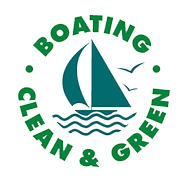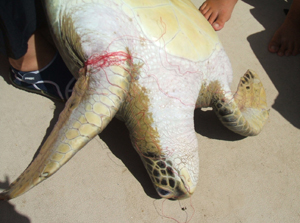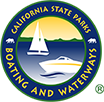

Trash, lost fishing gear, and grocery bags in the water or washed up on levees and beaches are harmful to wildlife and the quality of recreation, and pose serious threats to safety in our waterways. Marine debris can wrap around boat propellers and clog boat intakes, causing costly engine damage and becoming a safety hazard. Some marine debris such as cigarette filters, trash and grocery bags and small plastic pieces look like food to animals. Once ingested, these materials can cause suffocation and/or starvation.
A recent study found an average of 334,271 pieces of plastic per square mile in the North Pacific Central Gyre, which serves as a natural eddy system to concentrate material.1 Results of more than 10 years of volunteer beach cleanup data indicate that 60 to 80 percent of beach debris comes from land-based sources. And debris in the marine environment means hazards for animals and humans. Plastic marine debris affects at least 267 species worldwide, including 86 percent of all sea turtle species, 44 percent of all sea bird species, and 43 percent of marine mammal species.2
1 Moore, C. J., S. L. Moore, M. K. Leecaster, and S. B. Weisberg, 2001. A comparison of plastic and plankton in the North Pacific Central Gyre. In: Marine Pollution Bulletin 42, 1297-1300.
2 Laist, D. W., 1997. Impacts of marine debris: entanglement of marine life in marine debris including a comprehensive list of species with entanglement and ingestion records. In: Coe, J. M. and D. B. Rogers (Eds.), Marine Debris -- Sources, Impacts and Solutions. Springer-Verlag, New York, pp. 99-139
WHAT CAN I DO TO REDUCE WASTE AND PROPERLY STASH MY TRASH?
- Know the laws
- Don’t dump plastics and trash overboard. It is illegal to discharge plastic anywhere in the ocean or in inland waterways.
- Bring it all back. Properly stash all containers and trash onboard to prevent it from being blown overboard.
- Designate a permanent onboard trash bin. Use a container with a lid.
- Help guests understand that on your boat, no trash is thrown overboard.
- Put empty cans back in your cooler to recycle ashore.
- Remove product packaging at home to eliminate space-consuming packaging waste onboard.
- Find ways to reduce the amount of garbage you create while aboard your boat. For example, pack food from home in reusable containers rather than disposable food bags.
- Take used fishing line back to recycling bins at your marina or tackle shop, or send it directly to: Berkley Recycling Center, 1900 18th Street, Spirit Lake, IA 51360-1099.
- Shrink wrap is a low-density polyethylene used to protect boats during the winter. Shrink wrap is not biodegradable, and can become a disposal problem at landfills. Many marinas offer shrink wrap recycling programs. If your marina does not offer shrink wrap recycling on site, there are companies that for a fee will send you a postage paid bag that can be filled with shrink warp and returned to the company for recycling. For more information visit www.dr-shrink.com.
- Cigarette butts are the most common type of litter found washed up on beaches and are not biodegradable. Place extinguished cigarette butts in the trash.
- While on your boat, pick up any litter or marine debris that can be safely reached with a net and dispose of it properly
- Participate in a local marina or beach clean up. Call (800) COAST4U or visit www.coast4u.org for organized events in your area.
- Federal law now required all boats 26 feet or more in length, when operating in waters under U.S. jurisdiction, to display an informational placard on federal marine pollution prevention laws. You must display the required placard detailing these prohibitions in a prominent location where passengers and crew can read it. The placard must be 40 square inches as minimum size. They can be purchased at marine supply dealers.

Discarded fishing line accounts for many tragic wildlife deaths
